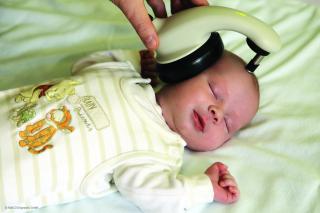- Home
- News
- Screening Matters, Issue 52, June 2015
- Training for DHB staff on new newborn hearing screening equipment and protocols
News
- Screening Matters Newsletter
- April 2019
- April 2018
- December 2017
- August 2017
- April 2017
- December 2016
- October 2016
- March 2016
- November 2015
- August 2015
- June 2015
- April 2015
- February 2015
- December 2014
- October 2014
- August 2014
- June 2014
- April 2014
- February 2014
- December 2013
- October 2013
- August 2013
- June 2013
- April 2013
- February 2013
Screening Matters
The National Screening Unit newsletter
In this issue:
- Training for DHB staff on new newborn hearing screening equipment and protocols
- E-colposcopy now live in seven DHBs
- The importance of timely newborn metabolic screening
- Maternal weight’s role in risk calculation for Down syndrome and other conditions
- Two new NCSP appointments
- Changes underway for antenatal HIV screening
- Gathering good quality ethnicity data
- New senior portfolio manager for BreastScreen Aotearoa
Training for DHB staff on new newborn hearing screening equipment and protocols

The NSU is also working with DHB advisors on a new information system for hearing screening.
New brochures for families have been developed with photos of the new testing equipment. These can be found here.
One or two babies out of every 1000 born will have a moderate or more severe permanent hearing loss. Finding these babies early is important for their language, learning and social development. Hearing screening is strongly recommended by the Ministry of Health and is offered to parents/guardians of all newborn babies by specially trained hearing screeners.
Because screening takes place soon after birth, Lead Maternity Carers (LMCs) have an important role in providing information to parents during pregnancy about the purpose of the screening, what to expect and supporting them to make an informed choice about having their baby’s hearing tested. The Ministry of Health strongly recommends this screening.
Newborn hearing screening requires a quiet environment without interruptions. The baby needs to be sleeping or very settled and the room should be quiet. If this is not the case, screening should not be initiated. Maternity staff and LMCs can help by:
- working with the hearing screener post birth to facilitate an appropriate screening time and settling of a baby for screening
- supporting women who may be anxious after babies are referred
- encouraging women to attend appointments to complete screening and/or audiology appointments, even if they have no concerns about their baby’s hearing.
To receive the Screening Matters newsletter by email, fill out our sign-up form.

